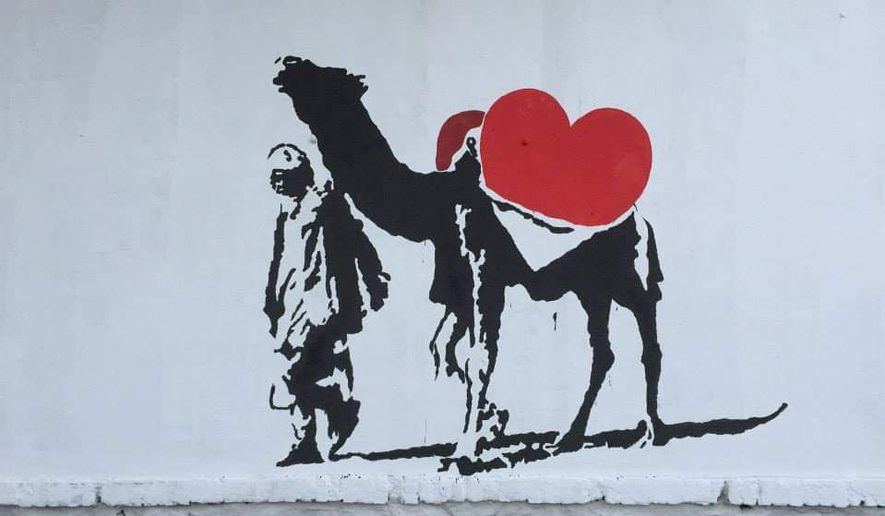Street artist Omaid Sharifi didn’t want to move from Afghanistan to Northern Virginia three months ago — but the Taliban had other plans.
“The Taliban will not let me speak, paint or live in Afghanistan,” said Mr. Sharifi, the former manager of a civil development program for the overthrown U.S.-backed Afghan government.
“But I know I will go back,” he said, adding that he’s seen six regime changes in his country.
He was evacuated from Kabul’s airport on Aug. 22 and spent 35 days in a refugee camp in Abu Dhabi, United Arab Emirates, before resettling in Northern Virginia.
Mr. Sharifi told his story in a fireside chat during a live political art show Saturday night at the Eaton DC hotel in downtown Washington.
The women’s rights group Women for Afghan Women organized the event to raise money for Afghan refugees who have resettled in the United States to escape the Islamist militants now ruling the country.
The 35-year-old muralist is the president of ArtLords, a Kabul-based group of 53 self-described “artivists” that he founded in 2014 to advocate for the values of a free society by painting more than 2,000 street murals and public artworks in Afghanistan.
Since taking control of the country in August, the Taliban have systematically removed all of the group’s murals, including a large painting of George Floyd near Kabul’s Green Zone that the militants painted over with victory slogans in September.
Nawa Arsala Lodin, chair of the Women for Afghan Women’s Associate Board, said a symbolic purpose of Saturday’s event was to “rebuild” the refugees’ artistic legacy.
“It is not all women artists, but they are all Afghan refugees,” Ms. Lodin told The Washington Times in an email.
Ms. Lodin, whose parents fled to the U.S. when the Soviet Union invaded Afghanistan in 1979, said the Taliban have destroyed all of Mr. Sharifi’s murals and are a danger to those members of ArtLords who remain in Kabul.
Mr. Sharifi said “at least half” of ArtLord’s actors, animators, painters and other artists remain in Afghanistan with their families, while others targeted by the Taliban have fled to nearby countries such as Qatar.
He added that the destroyed murals depicted values of a free society — including women’s equality, human rights, and fighting corruption and extremism — that the new Taliban rulers despise.
“Our art has always been about social issues as a voice of the voiceless people of Afghanistan,” said Mr. Sharifi, a former aide to exiled Afghan President Mohammad Ashraf Ghani.
Saturday’s 3½-hour Afghan Street Art event also featured music and displayed smaller works. Mr. Sharifi and two other members of ArtLords encouraged audience participation in recreating one of the destroyed murals.
“It’s better to change attitudes and behaviors with a brush rather than with a gun,” Mr. Sharifi said.
• Sean Salai can be reached at ssalai@washingtontimes.com.




Please read our comment policy before commenting.